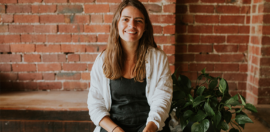Australia’s borders are shut, so where does that leave refugees?

28 July 2020 at 8:31 am
Humanitarian advocates say people fleeing dangerous situations are more at risk than ever
When COVID-19 reached Australia in late March, the government swiftly closed the country’s borders and hit pause on the Humanitarian Visa Program.
But with no certainty on what the program will look like once borders reopen, refugee advocates fear for the lives of vulnerable refugees and asylum seekers fleeing violence and persecution in their home countries.
Refugee numbers slashed
While no further grants or visas have been approved since 19 March, the Department of Home Affairs is still progressing applications so that when borders reopen, they are prepared.
However there has been no confirmation of when the borders will reopen to refugees. The department did not respond to our request for comment.
On a recent episode of the ABC Insiders program, acting federal immigration minister, Alan Tudge said that migration was predicted to fall by 85 per cent next year, with figures to be updated in the postponed October budget.
According to the Refugee Council Australia, the numbers are already down. The planned refugee and humanitarian program intake was 18,750 in the 2019-20 financial year – around 17,100 offshore refugee and humanitarian visas and around 1,650 permanent onshore protection visas. But as of 17 April, just 11,504 offshore refugee and humanitarian visas had been granted, just over 67 per cent of the annual offshore visa target.
At the end of April, Australia had granted only 12 emergency rescue visas, and was considering another 22 in close cooperation with UNHCR and the International Organisation for Migration.
Tudge said that future plans for the Humanitarian Visa Scheme would be announced in the October budget, but specifics around what that will mean for intakes have not been made clear.
Visa priority
In the wake of controversial Chinese national security laws in Hong Kong, Prime Minister Scott Morrison announced at the start of July that the government may offer safe haven to Hong Kong residents to come to Australia.
The government also announced just last week that priority visas will be given to international students in a bid to boost the struggling tertiary education sector.
The lack of information around what will happen to refugees has advocates, such as Settlement Services International’s general manager for settlement services Yamamah Agha, worried.
“Violence and persecution doesn’t stop in a pandemic,” Agha told Pro Bono News.
“We know that everyday there are people arriving at national borders urgently seeking protection… and they are just becoming stranded at those closed borders.
“It’s becoming a very dangerous situation and is making them vulnerable to smugglers or traffickers.”
A pause and rethink
A number of community and humanitarian groups have recently banded together in support of the Community Refugee Sponsorship Initiative (CRSI) – which advocates to let people financially sponsor the permanent migration of a refugee or refugee family in Australia.
Marking Refugee Week back in June, over 100 organisations signed onto the campaign, and a petition with over 35,000 signatures was presented to government, calling for a sponsorship program similar to one in Canada. Canada has welcomed more than 325,000 refugees in the past 40 years by harnessing the generosity of ordinary citizens and community groups.
Lisa Button, CRSI’s executive director, told Pro Bono News the international pause on migration was an opportunity to review how immigration worked in the country.
“We’d like this program to supplement the government resettlement program that’s been working very successfully in Australia for many years,” Button said.
She said that while Australia had its own health and economic challenges to deal with, delaying a restart on the resettlement program was only going to make matters worse.
“Australia is still, by all relative measures, a very healthy country and a very wealthy country,” she said.
“I think that the time is upon us to start ramping up refugee resettlement again, with all of the safeguards and checks and balances that are needed for that to happen safely.”
Agha added that many essential services had been able to pivot, and being able to take in refugees was no different.
“The situation is unprecedented, and like many essential services, we have been faced with challenges without disrupting services for our community,” she said.
“We need to continue our commitment to all of humanity, taking responsibility and supporting the most vulnerable during such a crisis.”







